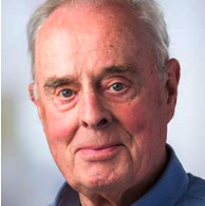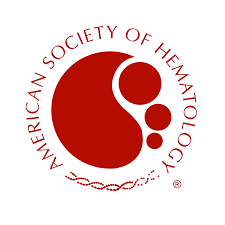

Rainer Storb receives Lifetime Achievement in Hematology award
Dr. Rainer Storb, professor (Hematology and Oncology) has received the Wallace H. Coulter Award for Lifetime Achievement in Hematology from the American Society of Hematology (ASH).
Storb is among 11 hematologists recognized by the ASH for their significant contributions to the field.
From the ASH, "These individuals are pioneers of progress - from advancing hematopoietic stem cell transplantation, laying the foundation for gene therapies, and deepening our understanding of how blood cancers develop to shaping the next generation of hematologists."
Rainer Storb
Dr. Rainer Storb is the Milton B. Rubin Family Endowed Chair at Fred Hutch Cancer Center.
Dr. Storb, a physician-scientist, is being recognized for more than 60 years of groundbreaking achievements in hematopoietic stem cell transplantation (HSCT), a hallmark treatment for multiple blood disorders. He was instrumental in the creation and refinement of HSCT, as well as in advancing the understanding and treatment of acute and chronic graft-versus-host disease. His research has helped establish more effective and less toxic transplant approaches.
Dr. Storb’s interest in bone marrow, sparked while a medical student in Germany, led him to the lab of past ASH President and Nobel Laureate E. Donnall Thomas, MD, at the University of Washington, where he contributed to the development of HSCT and its subsequent translation to humans. He and Dr. Thomas led the development of HSCT as a cure for aplastic anemia and other blood disorders, including leukemia, and, together with Dr. Paul Weiden, they were the first to recognize the graft-versus-leukemia effect. This mechanism is responsible for decreasing the likelihood of leukemia relapse following transplant and has paved the way for modern immunotherapies, which have saved countless lives.
One of Dr. Storb’s most notable accomplishments is the development of the non-myeloablative conditioning regimen and transplant, sometimes called the “mini-transplant,” which involves minimal pre-transplant radiation, is less intense than standard transplantation, and depends on the graft-versus-tumor effect. These innovations significantly expanded access to transplants, enabling older and medically frail patients to successfully undergo the procedure.
Dr. Storb is a pioneer, leader, and mentor whose mentees have spearheaded significant advancements in transplant for hematologic disorders. He has previously been recognized for his work with ASH’s Henry M. Stratton Medal (1997), E. Donnall Thomas Lecture and Prize (2005), and Mentor Award (2012).
Dr. Storb, in collaboration with his colleague Dr. Brenda Sandmaier, is currently involved in research on targeted radiotherapy to reduce the risk of relapse in patients with hematologic malignancies who have undergone transplant at the Fred Hutchinson Cancer Center.